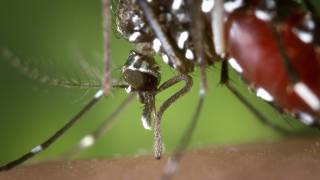Pregnant Texas Women to be Tested 3x for Zika

With the ongoing threat of the Zika virus in Texas, the Texas Department of State Health Services (DSHS) has updated its advice to test pregnant women three times during pregnancy, rather than two times.
“Routine testing provides important information to women about their pregnancies,” said DSHS Commissioner Dr. John Hellerstedt.
“It also increases the opportunity for public health to identify infections before Zika establishes itself in Texas, so we can respond quickly,” said Dr. Hellerstedt.
During July 2017, the Centers for Disease Control and Prevention (CDC) updated its recommendations for pregnant women with Zika symptoms and pregnant women without symptoms.
The change focuses on one of the most frequently used Zika tests which detects immunoglobulin B (IgM) antibodies and is more likely to yield a false positive test result.
Recent studies reported that Zika IgM antibodies might be detected for months after infection, limiting the ability to tell if the infection occurred before or during pregnancy.
Additionally, since it is now peak mosquito season in Texas, the likelihood of local Zika transmission is increased. As such, DSHS has added Kinney, Maverick, and Val Verde counties to the list of high risk areas under the expanded Zika testing criteria.
DSHS has also adjusted its statewide testing guidance based on local and national trends and increasing scientific knowledge of the Zika disease.
These changes are explained below:
- New: Test symptomatic pregnant women in Kinney, Maverick, and Val Verde counties regardless of travel or sexual exposure history. This recommendation is also still in effect for symptomatic pregnant women in Cameron, Hidalgo, Starr, Webb, Willacy, and Zapata counties.
- New: Test asymptomatic pregnant women in Cameron, Hidalgo, Kinney, Maverick, Starr, Val Verde, Webb, Willacy, and Zapata counties three times during pregnancy using both PCR and IgM concurrently* Previously, the recommendation was to test pregnant women in Cameron, Hidalgo, Starr, Webb, Willacy, and Zapata counties during the first and second trimester.
- New: Test other non-pregnant Kinney, Maverick, and Val Verde County residents who exhibit a rash and at least one other common Zika symptom [either fever, joint pain, or conjunctivitis (eye redness). This recommendation is also still in effect for symptomatic individuals in Cameron, Hidalgo, Starr, Webb, Willacy, and Zapata counties.
Revised Statewide Testing Guidelines:
- New: For all symptomatic individuals who meet testing criteria: test as soon as possible up to 12 weeks after onset using both PCR and IgM concurrently* Previous guidance differentiated the types of tests used between <2 weeks of symptom onset and 2-12 weeks after onset
- New: For all asymptomatic pregnant women who meet testing criteria: test as soon as possible up to 12 weeks after exposure using both PCR and IgM concurrently*. Previous guidance differentiated the type of tests used between <2 weeks of exposure and 2-12 weeks after exposure.
Moreover, the CDC issued a Level 2 Alert for traveling to Mexico, where local Zika transmission continues to occur.
The mosquitoes that spread Zika usually do not live at altitudes above 6,500 feet because of environmental conditions. Travelers to Mexico whose itineraries are limited to areas above this altitude are at minimal risk of getting Zika from a mosquito.
If you have a partner who lives in or has traveled to Mexico or any other area with risk of Zika, either use condoms or do not have sex for the rest of the pregnancy. Zika can cause severe birth defects in some cases when women are infected during pregnancy.
DSHS says Texans should continue to protect themselves from mosquito bites by consistently using mosquito repellent when outside, wearing long sleeves and pants, and using air conditioning or making sure door and window screens will keep mosquitoes out of the home.
Additionally, Texas has expanded the Medicaid benefit for mosquito repellent. DEET is intended to be applied to the skin or to clothing, and provides protection against mosquitoes, ticks, fleas, chiggers, leeches, and many biting insects.
"We will do all that we can to protect Texans and slow the spread of the Zika virus," said Health and Human Services Executive Commissioner Charles Smith. "Insect repellent is the best way to protect yourself, and we want it to be widely available."
Eligible Texas women who are between the ages of 10 and 45, and are pregnant, can go to participating pharmacies to pick up mosquito repellent.
These changes by DSHS are consistent with recently updated guidance from the Centers for Disease Control and Prevention.
Our Trust Standards: Medical Advisory Committee
- Texas Adds Three Counties to Enhanced Zika Testing Recommendations
- Zika in Texas
- Zika Virus in Mexico
- Zika Virus: Updates to Clinical Guidance and Recommendations for Pregnant Women and Infants
- Update: Interim Guidance for Health Care Providers Caring for Pregnant Women with Possible Zika Virus Exposure — United States (
- Researchers Say DEET Repellents Safe in Pregnancy to Prevent Zika
- Zika Information for Patients










